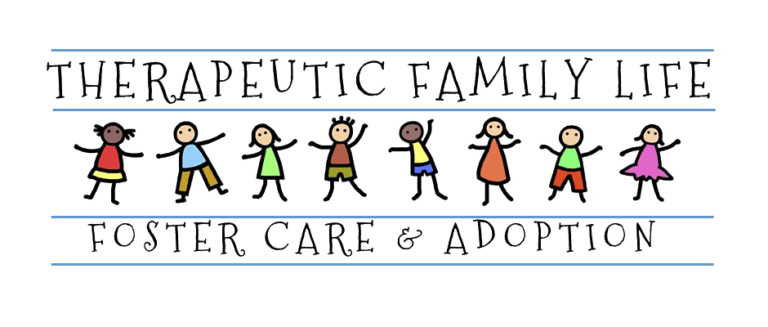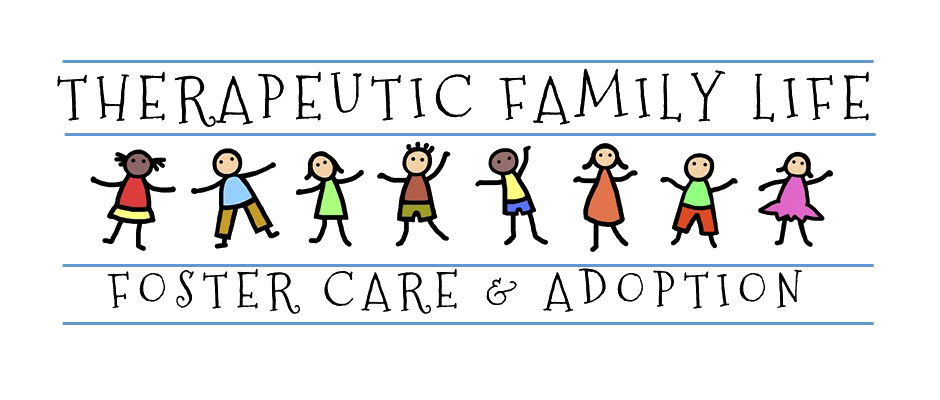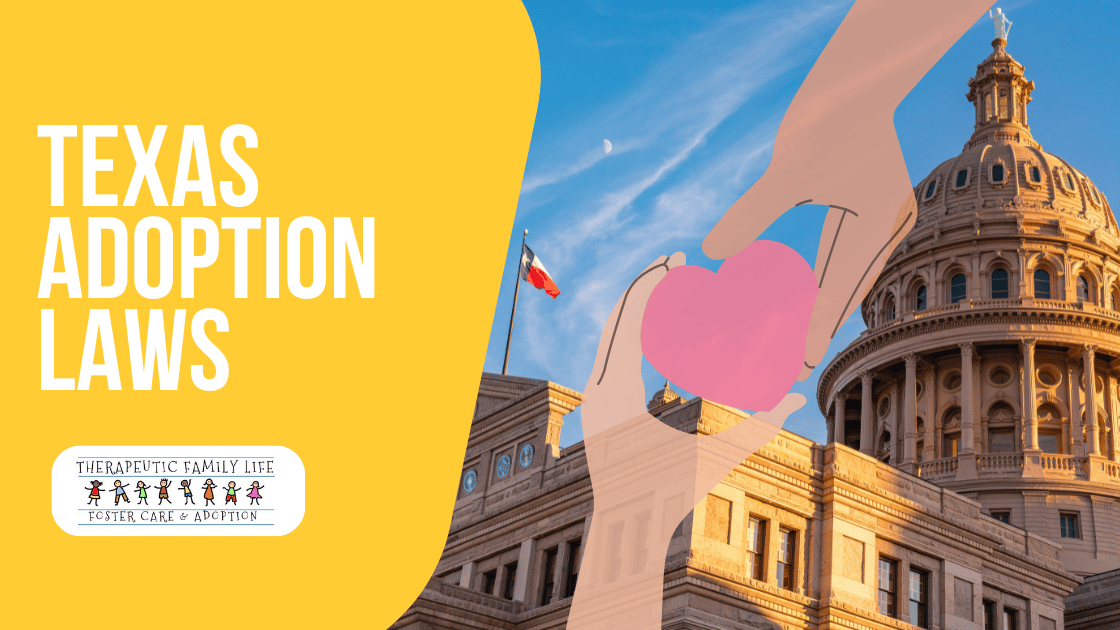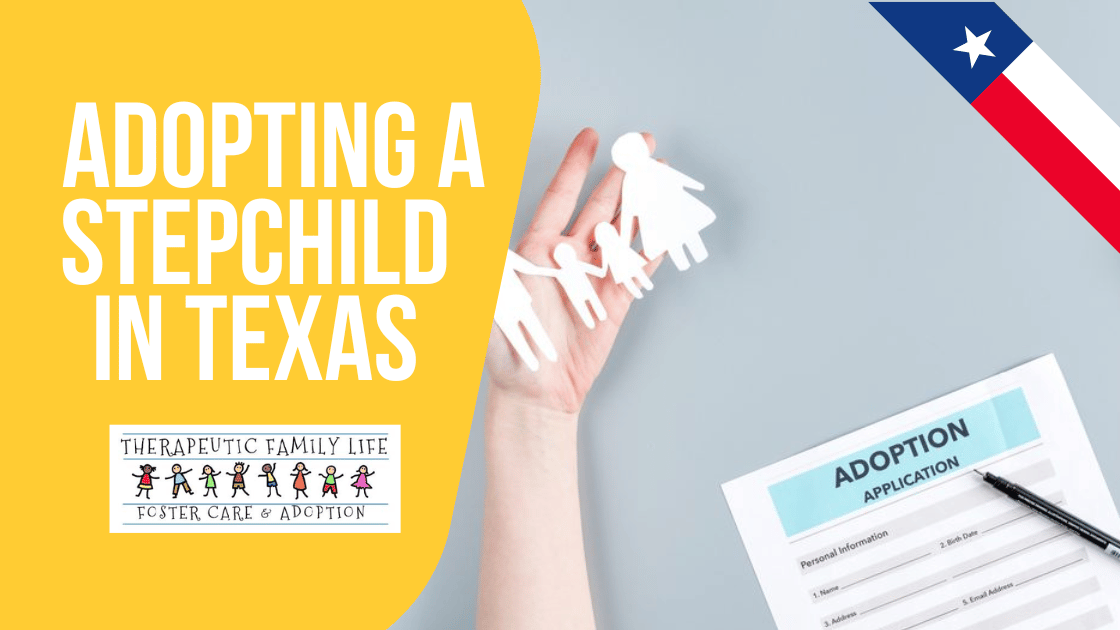If you typed “adoption subsidy Texas” into Google and landed here, the good news is that you’re in the right place to learn all about it! An adoption subsidy is a form of financial assistance that is given to adoptive parents to help them provide support to the child(ren) in their care. In Texas, adoption subsidies can range, however, are typically between $400 – $545 per month.
At Therapeutic Family Life, we are here to guide prospective adoptive parents on how these subsidies work, as well as other financial assistance options. As mentioned above, the goal of these subsidies is to provide support to adoptive children and ensure they have everything they need. While we’re here to answer any questions you have about this process, we’ve gathered up some of the most commonly asked questions our clients have had over the years – and that’s what we’ll be covering in today’s blog post.
What Is An Adoption Subsidy in Texas?
In Texas, an adoption subsidy is a type of financial assistance given to adoptive parents to help them cover child-rearing costs. As outlined by the Texas Department of Family and Protective Services (DFPS), several forms are available, including monthly payments, reimbursements for one-time expenses, and assistance to cover medical costs.
The subsidy eligibility requirements will vary based on where the funds are coming from. If the child is being adopted through DFPS via Title IV-E, eligibility requirements include but aren’t limited to:
- Reasonable action was taken to place the adoptive child in a home without adoption assistance unless doing so was in the child’s best interests
- The child is considered “special needs,” as outlined by the state at the time of the adoptive placement agreement signing.
To receive adoption assistance through the state of Texas, eligibility requirements include but aren’t limited to:
- Ineligibility to receive assistance under Title IV-E
- Having a signed adoption assistance agreement in place before the legal adoption
- The adoptive parents’ home was legally approved as outlined by the Minimum Standards for Child-Placing Agencies in Texas
These aren’t the only eligibility requirements to receive an adoption subsidy in Texas, however, they are some of the most important. Keep reading for the full scope of eligibility requirements in Texas.
Types of Adoption Subsidies Available in Texas
As briefly mentioned above, there are several types of adoption subsidies available in Texas that can help offset the cost of medical assistance, nonrecurring related expenses, and monthly payments that are determined based on the unique needs of the child. Here’s an overview of each type of adoption subsidy, when they would apply, and what they will cover:
Monthly Payments

In the state of Texas, monthly payments can cover a wide range of costs and services, including but not limited to:
- Educational needs
- Medical care, including dental, behavioral, psychiatric, and medical transportation/equipment
- Household utilities, transportation, food, and housing
- Costs of keeping the adoptive child connected to their birth family
The financial assistance you’ll receive with these monthly payments varies but will be between $400 and $545. It will depend on the child’s unique needs, but generally, the more care is needed for the child, the higher the payment will be.
Medical Assistance
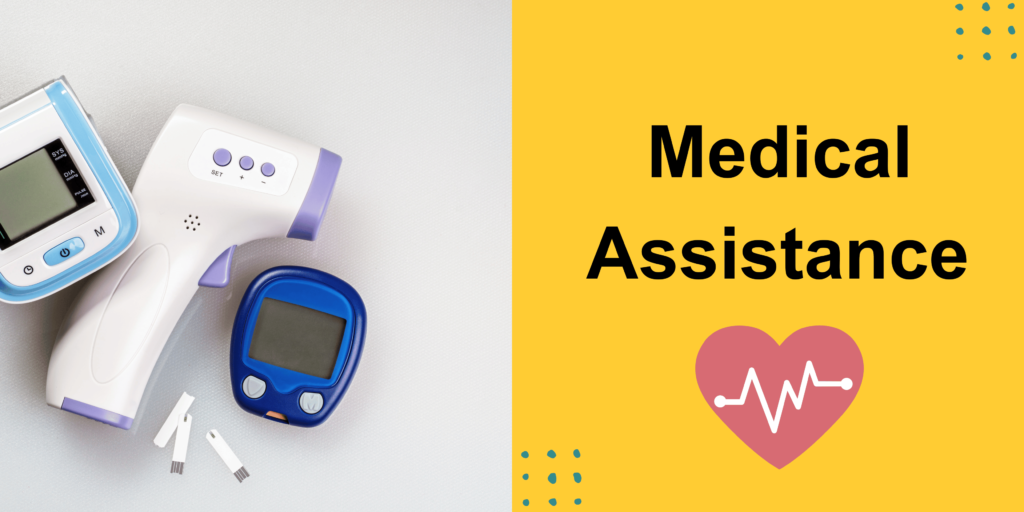
As noted above, medical assistance can cover a range of needs, including the costs associated with dental and eye needs, psychiatric and/or behavioral care, medical equipment, doctor’s appointments, and transportation until the child turns 18.
This type of assistance is usually paid to the adoptive parents through Medicaid. When you start this process, you will receive a Medicaid managed care enrollment packet so you can learn more about the health plans available, including which one your adoptive child is eligible for.
Nonrecurring Expenses

You may also receive an adoption subsidy for nonrecurring expenses. These refer to one-time adoption-related expenses, such as court and attorney costs, as well as any other fees associated with the adoption process like transportation and lodging (if applicable).
Adoptive parents will receive a one-time reimbursement of $1,200 to help offset these costs, as they move forward with the completion of the adoption.
This is a lot of information, so the team at Therapeutic Family Life is here to help you understand how each of these subsidies works and can even provide assistance.
Eligibility Criteria for Texas Adoption Subsidies
As mentioned above, there are eligibility requirements your adoptive child must meet to qualify for a Texas adoption subsidy. While there’s a lot of information to cover, we’ll do our best to sum it up.
First, to qualify for these subsidies, your adoptive child must be considered “special needs” under state law. This means that the child is at least six years old, part of a sibling group (or being adopted into a family that is already raising their sibling), possesses a verifiable physical, emotional, or mental condition/disability, or is at least two years old and part of an ethnic or racial group that spends more time in the foster care system compared to other racial or ethnic groups.
Due to this wide range of eligibility requirements, some additional eligibility requirements must be met to receive an adoption subsidy. The first is that it was determined that the adoptive child cannot (or should not) be returned to their original home. Second, children considered “special needs” and are eligible for assistance should:
- Be receiving social security benefits at the time of the adoption petition filing
- Be in the legal care of a certified or licensed non-profit agency either in or outside of Texas and be placed with a family in the state
- Are currently under the child placing agency’s managing conservatorship
Likewise, any adoptive child who was previously receiving assistance through Title IV-E or state assistance but is no longer due to the termination of their parents’ rights or who passed away, nor in the care of another child placing agency, will also be eligible for the subsidies.
In addition to meeting these eligibility requirements, you will also need to provide documentation including:
- An adoption assistance agreement
- A signed adoption assistance worksheet (also known as a form 2253A)
- A signed adoption assistance request form (also known as a form 2250)
- A signed adoption family resource
- Copy of the adoption decree
There’s also an evaluation process you must adhere to, which includes a home study and negotiation process. During the home study, a Guardian ad Litem will collect and review financial documents and conduct interviews and background checks to assess the family and environment. After the home study, the prospective parents will negotiate the adoption assistance agreement with DFPS to determine the child’s needs. Other factors, including the current financial situation, will be considered. If, at the end of the negotiations, the adoptive parents disagree with the decision, they can request a hearing.
How to Apply for an Adoption Subsidy in Texas
The first step in applying for an adoption subsidy in Texas is to request a Form 2250 from your caseworker. This is known as the Request for Adoption Assistance. In this form, you’ll be asked questions including but not limited to:
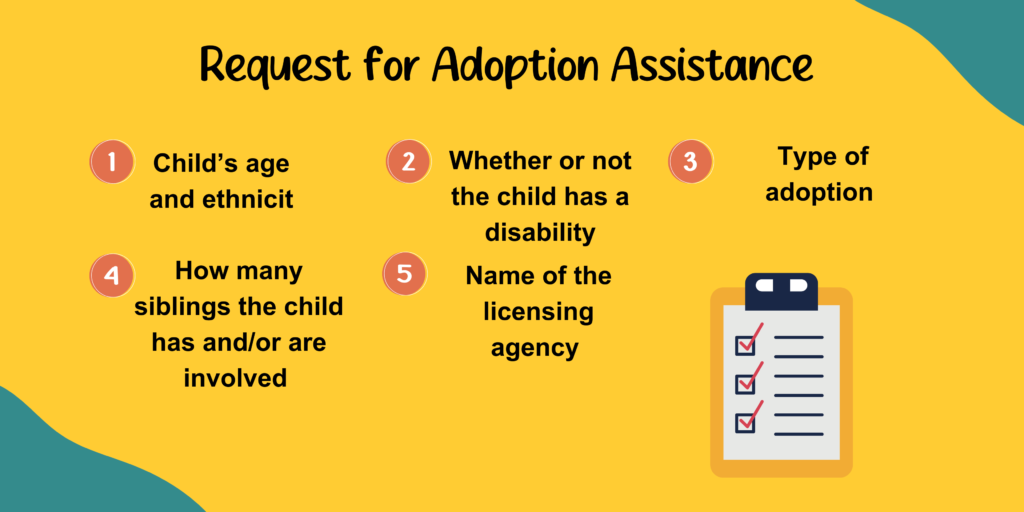
- The child’s age and ethnicity
- Whether or not the child has a physical, emotional, or mental disability
- The type of adoption it is, including both kinship and foster-to-adopt placements
- How many siblings the child has and/or are involved
- The name of the licensing agency handling the adoption
Ideally, you’ll want to request this form as close to your formal adoption date as possible. You’ll also want to gather the following documentation:
- Copy of the Petition to Adopt, including the date it was filed
- Court orders showing proof of termination of parental rights
- Your criminal history report
- SSI eligibility award letter
- Court order removing the adoptive child from their home, as well as the petition that removed the child from their home
- Copy of the child’s birth certificate
- Proof of U.S. citizenship or current immigration status
- Proof that the child is considered “special needs” at the time of the adoption
- Foster care eligibility application, if applicable
- Signed adoptive placement agreement
This is a lot of documentation. The good news is that there are several places you can go for assistance to ensure this collection of evidence runs smoothly, including your adoptive child’s doctors and medical team to give you a formal diagnosis of disability, as well as your child’s foster care file. These files can tell you of the child’s diagnoses, physical and social needs, and much more. The best rule of thumb for ensuring this collection of evidence goes smoothly is to keep records of everything, whether it be receipts, copays, and more, as they can all serve as forms of documentation for adoption subsidies.
How Therapeutic Family Life Supports Parents in the Application Process
If you need assistance with this process, the team at Therapeutic Family Life is here to help. We have years of experience helping local families determine eligibility and apply for adoption subsidiaries in Texas.
Our background in this industry has allowed us to be a support system for prospective adoptive parents who want to learn more about these subsidiary programs. Whether it’s helping you collect the necessary paperwork or answering questions, we can help. You’re not alone!
Common Questions about Texas Adoption Subsidies
If you’re navigating the adoption process in Texas for the first time, you’re going to have questions about these subsidies. Fortunately, you’ve come to the right place. Here are some of the most commonly asked questions about “monthly adoption subsidy Texas” and their answers:
How Long Do Adoption Subsidies in Texas Last?
In Texas, adoption subsidies will last until your adoptive child turns 18. However, there are some exceptions to this duration. For example, if your child was adopted after they turned 16, assistance may be extended until they turn 21. This extension is usually determined based on their vocational or educational requirements. A member of our TFL team can help you determine these eligibility requirements.
How to Renew an Adoption Subsidy in Texas
If you want to renew your adoption subsidy in Texas, the first step is to meet with your case worker who helped facilitate the adoption. From there, you can have them obtain a Request for Adoption form, which will then be submitted and reviewed. Renewals are usually requested if there’s a change in the child’s needs.
Can the Amount of a Monthly Adoption Subsidy Texas Change?
If your child’s needs change or the financial situation with your family does, you may request a review from DFPS to change the amount of money you receive. As mentioned earlier, the range is between $400 and $545, so if your child’s medical needs increase, it’s likely that your payments will, too.
However, keep in mind that these changes aren’t without effort. In addition to sending your paperwork for review, you will have to undergo a negotiation process, as well. This negotiator will contact you within 10 days of submitting your formal request.
What is the average monthly adoption subsidy in Texas?
The average monthly adoption subsidy in Texas is between $400 and $545, with lower payments helping to cover basic needs and higher payments designed to cover more specialized care.
Who qualifies for a Texas adoption subsidy?
In Texas, minor children who are legally able to be adopted, ineligible for Title IV-E assistance, and are considered “special needs” qualify for an adoption subsidy.
Final Thoughts about Adoption Subsidy Texas
Adoption subsidies are designed to help offset some of the costs of child-rearing for prospective parents who are interested in moving forward with adoption. While a Texas adoption subsidy is great, it can be incredibly complex for first-time adoptive parents to navigate. That’s why the team at Therapeutic Family Life is here to walk you through each step of the process.
Whether you need help finding out which form to use or whether your adoptive child qualifies for a subsidy under state law, we’re here to help. We have worked with many Texas families on their adoption journeys and are here to be a resource for you as you walk down this path, as well. Don’t turn to Google if you have a question about “adoption subsidy Texas.” Instead,contact us today to speak with a member of our team. We’re here and ready to assist you!
Courtney Dercqu is a freelance writer and editor living in Central Florida. Having written about everything from healthcare to tourism, she holds a passion for helping others, which is how she landed at Therapeutic Family Life. She holds a Bachelor of Arts in Creative Writing and English. Her work has been published in Elite Daily, Collective World, Thought Catalog, The Good Men Project, YourTango, and many more.About This Author

Courtney Dercqu
